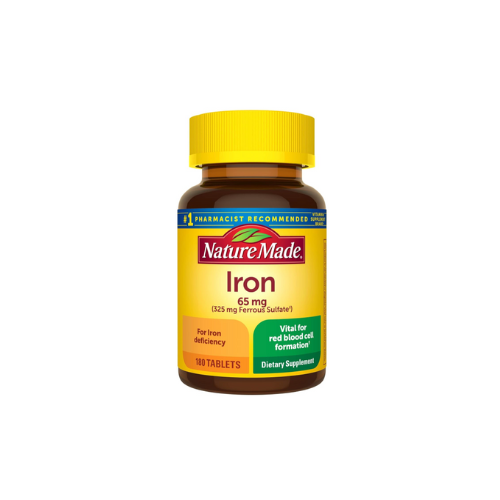The Carnivore Diet for Pregnant Women
Evaluating Health Implications and Guidelines
The carnivore diet, consisting solely of animal products, has attracted attention for its potential health benefits, but its suitability during pregnancy raises important considerations. Pregnancy is a critical time when nutrient needs are heightened to support fetal development and maternal health. The intake of essential vitamins, minerals, and a balance of macronutrients is paramount; any deviation from a balanced diet warrants thorough evaluation and often, medical supervision.
Healthcare professionals generally advise pregnant women to maintain a diversified diet to meet these increased nutritional demands. Yet, for those contemplating or already following a carnivore regimen during pregnancy, it becomes crucial to assess the diet's capability to fulfill the specific nutritional requirements of this life stage. Pregnant women on restricted diets, such as a carnivore diet, should consult with their healthcare providers to ensure an adequate intake of essential nutrients and to make necessary dietary adjustments.
Despite personal anecdotes of maintaining a carnivore diet during pregnancy, the scientific community largely remains cautious. The risks of nutrient deficiencies, particularly in vitamins, minerals, and fiber, which are typically obtained from plant sources, could pose health risks to both mother and child. The diet's strict limitations may impair the ability to attain the diverse range of nutrients required for a healthy pregnancy outcome.
Understanding the Carnivore Diet
The carnivore diet emphasizes consumption exclusively of animal products, prioritizing high-protein and high-fat foods while excluding carbohydrates, fruits, and vegetables.
Fundamentals of the Carnivore Diet
The carnivore diet is marked by its elimination of plant-based foods, relying solely on animal products such as meat, fish, eggs, and certain dairy products. It promotes the intake of protein and fat, considering them essential for the body's needs, while completely cutting out carbohydrates. Proponents argue that such an approach can lead to various health benefits, although it stands at odds with conventional dietary guidelines that typically include a diverse range of food groups including vegetables, fruit, grains, legumes, nuts, and seeds.
Protein Sources: Red meat, poultry, fish, and eggs
Fat Sources: Fatty cuts of meat, butter, and certain cheeses
The diet excludes:
All carbohydrates: No fruits, vegetables, grains, or sugars
Plant-based proteins: Legumes, nuts, and seeds
Fibers: Which are primarily found in the excluded plant-based foods
Comparative Nutrition of Carnivore and Varied Diets
When comparing a carnivore diet to diets that include a variety of foods, key differences emerge in nutritional content, particularly regarding vitamins and minerals.
Comparison of Nutrient Profiles: Carnivore Diet vs. Varied Diet
Vitamins
Carnivore Diet: May lack certain vitamins like C and E found in plants.
Varied Diet: Typically includes a wide spectrum of vitamins from both animal and plant sources.
Minerals
Carnivore Diet: Rich in minerals like iron and zinc from red meat.
Varied Diet: Provides diverse minerals, including those less abundant in animal products.
Fiber
Carnivore Diet: Lacks fiber as it is absent in animal products.
Varied Diet: Contains fiber from vegetables, fruits, grains, and legumes.
Carbohydrates
Carnivore Diet: Non-existent.
Varied Diet: Varied, depending on the inclusion of fruits, vegetables, and grains.
Protein and Fat
Carnivore Diet: High levels, as these macronutrients dominate the diet.
Varied Diet: Balanced, with an adjustment according to dietary needs and health goals.
The carnivore diet delivers ample protein and fat, but can lack in providing a full spectrum of vitamins and minerals that are readily available in a more varied diet, which includes a greater diversity of food groups. It is essential to consider the potential nutritional gaps that might arise from following a restrictive diet such as the carnivore diet, especially for specific populations like pregnant women.
Pregnancy Nutrition Basics
During pregnancy, it's essential to focus on a diet that provides the necessary nutrients to support both the mother and the growing fetus. The right balance of macronutrients (protein, fat, and carbohydrates) and micronutrients (vitamins and minerals) is crucial.
Essential Nutrients for Pregnancy
Protein: Vital for the growth of fetal tissue, including the brain, and the expansion of maternal tissue.
Fats: Necessary for fetal development, especially omega-3 fatty acids which contribute to brain growth.
Carbohydrates: They provide energy. Choose complex carbohydrates that also offer fiber.
Fiber: Important for digestive health, as pregnancy can often slow the digestive process.
Vitamins and Minerals:
Folic Acid (Folate): Essential for preventing neural tube defects.
Iron: Important for preventing anemia, ensuring adequate oxygen is transported to the fetus.
Calcium: Critical for bone development.
Vitamin D: Works with calcium to help the baby's bones and teeth develop.
Vitamin B12: Important for maintaining the health of the nervous system.
Vitamin A: For fetal eye development and immune function, but excessive amounts can be harmful.
Get the best value for your money by purchasing iron, folate, calcium, vitamin D, and omega-3 online!
Role of Macronutrients and Micronutrients
Macronutrients provide the bulk of the energy needed for pregnancy. They are required in larger quantities:
Protein: 70-100 grams/day.
Fat: High-energy source and assists with the absorption of certain vitamins.
Carbohydrates: Major source of energy, recommended daily intake is about 175 grams.
Micronutrients, while needed in smaller amounts, are crucial for proper development and prevention of birth defects.
Common Nutritional Deficiencies in Pregnancy
Common deficiencies and their consequences include:
Iron Deficiency: Can lead to anemia, causing fatigue and increased risk of infections.
Folate Deficiency: Increases the risk of neural tube defects in the fetus.
Calcium: Low intake may affect fetal bone growth.
Vitamin D: Deficiency can cause skeletal deformities and growth retardation.
Omega-3 Fatty Acids: Insufficient intake may impact fetal brain and eye development.
Safety Concerns for Pregnant Women
While the carnivore diet may offer weight management benefits during pregnancy, there are valid safety concerns that need careful consideration to ensure the health of both the mother and the baby.
Risks Associated with the Carnivore Diet
High Intake of Fats and Proteins: A diet rich in fats and proteins can alter one's cholesterol levels, potentially impacting heart health. Pregnant women should monitor these levels closely to prevent complications.
Lack of Fiber: The carnivore diet is devoid of fiber, found primarily in plant-based foods. This can lead to constipation, a common issue during pregnancy.
Kidney Stress: High protein diets can place extra stress on the kidneys, which are already under additional strain during pregnancy. Monitoring kidney function is essential.
Chronic Diseases: There is concern that long-term adherence to such restrictive diets could increase the risk of chronic diseases like heart disease and certain cancers.
Managing Potential Nutritional Gaps
Vitamins and Minerals: The absence of certain food groups on the carnivore diet can result in inadequate levels of critical nutrients such as vitamin D, calcium, iodine, omega-3 fatty acids, and vitamin B12. Pregnant women considering this diet may need to consult with healthcare providers to manage these potential gaps.
Supplementation: To ensure the nutritional status is maintained, pregnant women may require supplements for nutrients typically sourced from a wider variety of foods to prevent both maternal and fetal deficiencies and to support the healthy development of the baby.
The Carnivore Diet During Pregnancy
The carnivore diet's influence during pregnancy is multifaceted, with potential benefits and challenges, and diverse implications for each trimester.
Potential Benefits and Drawbacks
Benefits:
Weight Management: May help maintain a healthy weight during pregnancy, potentially reducing the risk of issues such as gestational diabetes and hypertension.
Satiety: High protein and fat intake can increase the sensation of fullness, thereby potentially curbing the tendency to overeat.
Blood Sugar Control: Can reduce blood sugar fluctuations and insulin resistance due to low carbohydrate intake.
Drawbacks:
Nutritional Deficiency Risks: Excludes certain food groups, raising the risk of nutrient deficiencies important for fetal development, such as folic acid, fiber, and vitamin C.
Morning Sickness: High-fat foods can sometimes exacerbate nausea, particularly in the first trimester.
Blood Pressure Concerns: High intake of red meat and fat can impact blood pressure, posing a potential risk for pre-eclampsia.
Navigating Pregnancy Trimesters on Carnivore Diet
First Trimester:
Focus on hydration and micronutrients, as morning sickness may make it difficult to maintain a strictly carnivorous diet.
Monitor portion sizes and food quality to support early fetal development and accommodate changes in taste and appetite.
Second and Third Trimesters:
Increase intake of foods rich in omega-3 fatty acids (like fatty fish) for fetal brain development.
Monitor weight gain to ensure it aligns with dietary guidelines for pregnancy, adjusting food intake as necessary to support healthy growth.
Regularly consult with a healthcare professional to balance the diet's restrictions with the increased nutritional demands of later trimesters.
Dietary Inclusions and Exclusions
When adopting a carnivore diet during pregnancy, it is important to understand which foods to include for adequate nutrition and which to exclude to avoid potential deficiencies.
Integrating Animal-Based Foods
The carnivore diet involves consuming primarily animal-based foods. These include a variety of meats such as beef, chicken, pork, and organ meats like liver, which provide high-quality protein and essential nutrients. In particular, liver is rich in Vitamin A and iron, which are vital during pregnancy.
Seafood, especially fatty fish like salmon, is another crucial category, offering omega-3 fatty acids important for the baby's brain development. Eggs and dairy products, such as cheese, also play a significant role in this diet, providing additional proteins, fats, and various micronutrients. Pregnant women can consider including:
Red meats (beef, pork)
Poultry (chicken)
Organ meats (liver)
Seafood (salmon, other fatty fish)
Eggs
Dairy products (full-fat cheese)
It is essential to ensure that these foods are prepared safely to reduce the risk of foodborne illnesses, which are more concerning during pregnancy.
Avoiding Common Plant-Based Foods
This diet excludes plant-based foods that are traditionally considered staples in many diets. This means avoiding all vegetables, fruit, grains (like rice and bread), legumes (including beans and lentils), nuts, and seeds. Also excluded are cereals, processed forms of meat, and items high in added sugars or salts.
By not consuming these groups of foods, there is a risk of missing essential nutrients like fiber, certain vitamins, and minerals that are important for a healthy pregnancy. For instance, foods typically restricted on this diet that would normally provide these nutrients include:
Vegetables (rich in fiber and vitamins)
Fruit (source of vitamins and minerals)
Grains (like whole-grain bread and rice, important for fiber)
Legumes, nuts, and seeds (contain healthy fats and protein)
Cautious planning is crucial to prevent nutritional deficiencies when adhering to the carnivore diet during pregnancy, and supplementation might be necessary to meet the increased dietary requirements.
Addressing Specific Health Concerns
Pregnant women following a carnivore diet must closely consider the potential for specific health concerns, such as nutrient deficiencies and cholesterol imbalances, that can affect both maternal and fetal health.
Preventing Nutrient Deficiencies
The carnivore diet's exclusion of fruits, vegetables, and whole grains removes important sources of essential vitamins and fiber. This can sometimes result in deficiencies that particularly affect pregnant women, such as anemia and constipation. To prevent anemia, which is a concern due to the lack of vitamin B12 and iron sources in plant-based foods, regular monitoring of hemoglobin levels can be essential. For constipation, a common issue during pregnancy, ensuring a sufficient intake of animal-based sources of fat can help maintain digestive health.
Micronutrients to monitor for deficiencies include:
Vitamin B12: critical for neural tube development and reducing the risk of neural tube defects.
Iron: key in preventing anemia and ensuring oxygen is adequately delivered to the fetus.
Calcium: important for bone health and preventing maternal bone density loss.
Monitoring and Balancing Cholesterol Levels
A carnivore diet typically involves a higher intake of cholesterol and saturated fats, raising concerns about heart disease risk. Pregnant women need to monitor blood cholesterol levels to maintain cardiovascular health. Although the body requires cholesterol for hormone production and fetal development, an excessive amount can lead to complications. To address this concern, they should include a variety of lean meats and prioritize the consumption of omega-3 fatty acids, as found in fish, to support heart health.
Strategies for balancing cholesterol levels include:
Opting for lean meats: Choosing cuts of meat that are lower in saturated fats can help manage cholesterol levels.
Incorporating omega-3-rich foods: Foods like salmon can provide essential fats beneficial for fetal brain development and maternal heart health.
Supplementation Strategies
Supplementation during pregnancy on a carnivore diet can be critical to ensure the mother and baby receive all necessary micronutrients. This is particularly important for nutrients that are less abundant in animal products.
When to Consider Supplements
Supplements should be considered if dietary intake may not meet the essential nutrients requirements during pregnancy. Since the carnivore diet excludes food groups rich in certain vitamins and minerals, supplements become important for filling nutritional gaps. Women on a carnivore diet may need to supplement to prevent deficiencies in iron, folate (or folic acid), vitamin D, and calcium.
Iron: Increased needs due to higher blood volume and fetal demands.
Folate/Folic Acid: Essential for preventing neural tube defects and supporting fetal growth.
Calcium: Vital for bone development, with increased demands during pregnancy.
Vitamin D: Important for calcium absorption and immune function.
Choosing the Right Supplements for Pregnancy
Selecting appropriate supplements means focusing on those that are tailored for pregnancy and offer the right dosage of micronutrients. High-quality prenatal vitamins usually contain folic acid and iron. However, additional supplementation might be required to reach optimal levels.
Folate: 400–800 mcg/daily.
Iron: 27 mg/daily (or as recommended by a healthcare provider).
Calcium: 1,000 mg/daily (especially for those who do not consume dairy).
Vitamin D: 600 IU/daily.
It's important for pregnant women to consult healthcare providers before adding any supplements to their diet for personalized advice and dosage requirements.
Carnivore Diet and Weight Management
The section delves into the relationship between the carnivore diet and weight management during and after pregnancy, focusing on appropriate weight gain and subsequent weight loss.
Handling Weight Gain During Pregnancy
Pregnant women may consider the carnivore diet for weight management due to its high protein and fat content. Protein and fats can increase satiety, which helps regulate appetite and may prevent overeating. It's essential, however, to ensure that weight gain stays within recommended ranges during pregnancy to support the baby's growth and maintain the mother's health. The focus on meats, which are low-carb and may induce ketosis, could influence metabolism, potentially supporting steady weight gain.
Postpartum Weight Loss and Carnivore Diet
After childbirth, some new mothers may turn to the carnivore diet to address postpartum weight loss. The diet's low-carb nature can stimulate ketosis, a metabolic state that helps the body burn fat for energy more efficiently. However, a balance is crucial, as excessive intake of saturated fat on a carnivore diet might not align with all postpartum nutritional needs. Women considering the carnivore diet postpartum should focus on nutritionally rich, high-quality animal products to support their recovery and long-term health.
Medical Perspectives and Research
The intersection of the carnivore diet and pregnancy is under scientific scrutiny due to concerns over comprehensive nutrition and long-term health effects.
Scientific Evidence on Carnivore Diet and Pregnancy
Research to date on the carnivore diet, particularly during pregnancy, is sparse. What exists suggests a critical need for balanced nutrients, especially as nutritional requirements increase for fetal development. Most studies concentrate on broader ketogenic diets, of which carnivorous eating is a subset. They indicate specific nutrient interactions and metabolic effects that may alter nutritional needs. An example involves the ketogenic diet’s impact on magnesium and sodium levels, which are critical during pregnancy. Scientists assert that further research is necessary to understand the carnivore diet’s safety and effects on nutritional status during pregnancy, where deficiencies pose significant risks to both mother and child.
Expert Recommendations and Guidelines
Health organizations and experts offer dietary guidelines for pregnant individuals, which emphasize a wide variety of nutrients. These include adequate intakes of folate, iron, calcium, and essential fatty acids, which are crucial for fetal development and the mother's health. The current consensus recommends a balanced diet, incorporating both plant and animal sources to prevent nutritional deficiencies and lower the risk of chronic disease. There's a specific focus on the avoidance of certain nutrient-poor and high-mercury animal products. While personal testimonies on the carnivore diet during pregnancy exist, these anecdotes do not replace evidence-based guidelines. Experts emphasize moderation and balance rather than the elimination of whole food groups to support both maternal metabolism and overall health.
Planning Meals and Grocery Shopping
When approaching the carnivore diet during pregnancy, careful meal planning and strategic grocery shopping are essential for ensuring both mother and baby obtain all necessary nutrients. The focus is on constructing meals rich in protein and essential nutrients exclusively from animal sources while shopping for the highest quality products.
Creating Balanced Meal Plans
Constructing balanced meal plans on a carnivore diet means prioritizing a variety of animal proteins to cover nutritional bases. These plans should include:
Red Meat: A rich source of iron, zinc, and B vitamins. Grass-fed beef, lamb, or game meats are optimal choices.
Poultry: Options like chicken breast provide a lean source of protein.
Fish: Especially those high in omega-3 fats, such as salmon, for developmental needs.
Eggs: Full of choline and healthy fats, they contribute to fetal brain development.
Organ Meats: Liver, a powerhouse of vitamin A and B12, crucial for cell reproduction.
Remember, balance and variety are key. Integrate different meats and cuts to ensure a broad spectrum of nutrients.
Shopping for High-Quality Animal Products
For the healthiest outcome on a carnivore diet, one must be selective while shopping. Here's a strategic approach:
Source Locally: Purchase fresh meats and poultry from trusted local butchers or farmers' markets.
Quality Over Quantity: Opt for grass-fed, pasture-raised meats and wild-caught seafood to maximize nutrient intake.
Organic Eggs: Choose eggs from free-range chickens to ensure they contain higher nutrient levels.
Making a comprehensive list before shopping aids in avoiding unnecessary items and maintaining focus on high-quality proteins and fats essential for both the mother's and baby's health.
Coping with Common Pregnancy Symptoms
In addressing common pregnancy symptoms, it's crucial to focus on practical strategies that expectant mothers on a carnivore diet might employ, particularly when confronting nausea and adapting to food aversions.
Dealing with Morning Sickness and Digestive Issues
Morning sickness, characterized by nausea and vomiting, is a common symptom for many women during pregnancy. Strategies to manage these symptoms while on a carnivore diet might include:
Smaller, More Frequent Meals: Consuming smaller amounts of food at a time can alleviate nausea and prevent the stomach from becoming too full, which may trigger vomiting.
Hydration: Staying well-hydrated is key, as dehydration can worsen nausea. Sipping on water throughout the day can help.
Ginger: Adding ginger, in permissible forms for those on a carnivore diet, may help reduce nausea.
Avoid Trigger Foods: Identifying and avoiding specific fatty meats that exacerbate nausea is advisable.
Constipation is another concern that may arise during pregnancy. To combat this on a carnivore diet:
Increase Fat Intake: Adequate fat can help facilitate digestion and prevent constipation.
Hydrate: Drinking enough water is essential for bowel regularity.
Physical Activity: Light exercise, as approved by a healthcare provider, can stimulate bowel movements.
Food Aversions and Carnivore Diet Adaptations
Food aversions can make adhering to any diet challenging during pregnancy. Pregnant women on a carnivore diet facing aversions might need to:
Vary Protein Sources: Experimenting with different types of meats and preparation methods can help in finding tolerable options.
Cook Meats Thoroughly: Ensuring meats are well-cooked could reduce aversions linked to the smell and texture of certain meats.
Consult a Nutritionist: Working with a nutritionist to adapt the diet safely and ensure all nutritional needs are met during pregnancy is essential.
Carnivore Diet in the Context of Modern Lifestyles
The incorporation of the carnivore diet into modern lifestyles poses unique challenges in terms of adherence, social interactions, and cultural practices. The diet spans across various facets of daily life, often requiring careful planning and consideration.
Adherence and Practicality in Daily Life
The carnivore diet is characterized by the consumption of exclusively animal-based products, including meat, fish, and sometimes dairy and eggs. In today's fast-paced society, maintaining a strict eating regimen solely comprised of these elements can present practical difficulties.
Availability: Access to unprocessed, varied types of meats can be restricted based on location and socioeconomic status.
Convenience: Preparing fresh meals daily may not align with the time constraints of modern professional obligations.
Moderation: Striking a balance between diet adherence and the consumption of essential nutrients found outside of animal products poses a considerable challenge.
Moreover, reliance on processed meats as a quick alternative to fresh options may clash with the goal of optimal health, given that these can be high in sodium and preservatives.
Social and Cultural Considerations
Social factors play a significant role in a person's ability to follow the carnivore diet amidst predominant societal norms.
Dining Out: Restaurant menus often cater to more varied diets, limiting suitable options for those strictly adhering to a carnivore regimen.
Cultural Events: Choices can be severely restricted during social gatherings and cultural events that might traditionally feature a wide range of food groups.
Additionally, the prevailing emphasis on plant-based foods in certain cultural factors highlights the potential for social friction. Individuals may encounter misunderstanding or animosity from peers due to the unconventional nature of their dietary choices. This can create an adverse impact on social life and psychological well-being, stressing the importance of a supportive community.
Conclusion
A carnivore diet, while restrictive in nature, appears to be a questionable choice for pregnant women, particularly considering the broad spectrum of nutrients required during this critical period. Nutrition professionals emphasize the importance of a balanced diet, particularly one that includes a variety of vitamins, minerals, and both macronutrients and micronutrients.
Dietary Considerations: Carnivore vs. Balanced Diet
Carnivore Diet
Protein and Fats
Provides high satiety and may support healthy weight gain.
Should be adjusted for adequate gestational weight gain.
Lacks essential nutrients found in other food groups.
Food Safety
Risk of consuming raw meats can be harmful.
May miss key nutrients like folate, which is critical for fetal development.
Balanced Diet
Protein and Fats
Should be adjusted for adequate gestational weight gain.
Nutrient Diversity
Includes a wide array of vitamins and minerals.
Food Safety
Safer due to variety and cooking methods.
Fetal Development
Supports optimal growth and development of the fetus.
It is clear from available research and common dietary guidelines that pregnant women should consume a diet enriched with a variety of nutrients. Health professionals often caution against the potential hazards of a diet limited to mainly meats, suggesting instead an inclusive approach to eating.
Any woman considering a carnivore diet during pregnancy should first consult with a healthcare provider. It is essential to prioritize not only the health and weight management of the mother but also the comprehensive development of the fetus. The implications of restrictive diets on pregnancy outcomes merit careful evaluation on a case-by-case basis to ensure the well-being of both mother and child.












